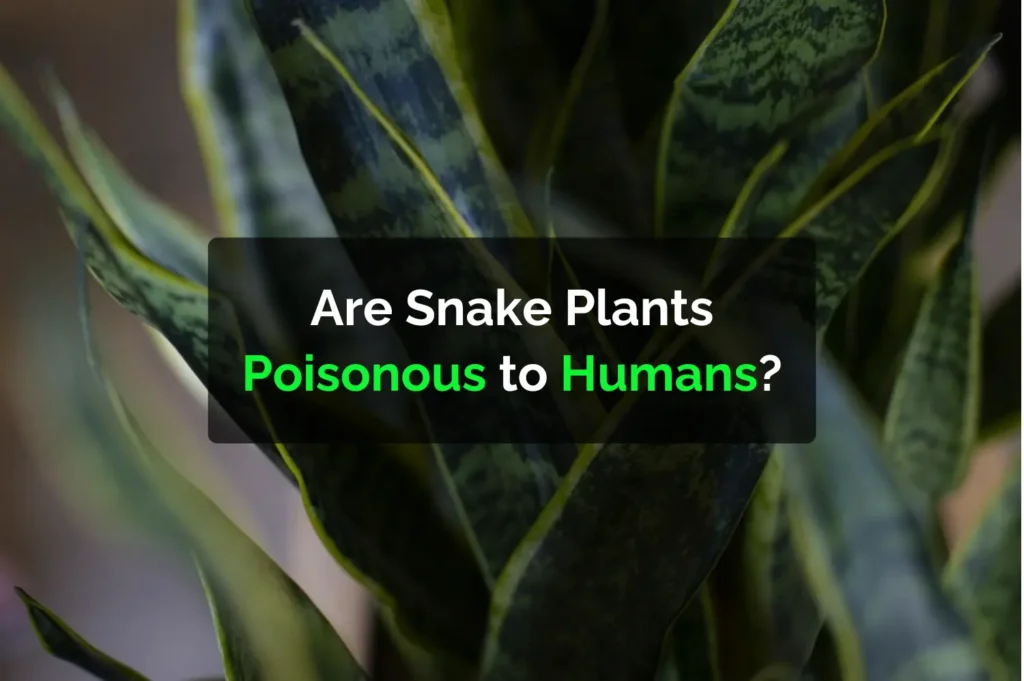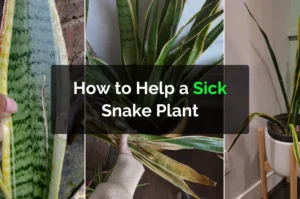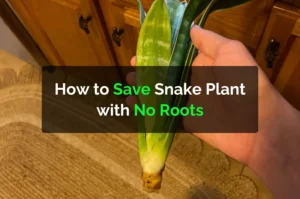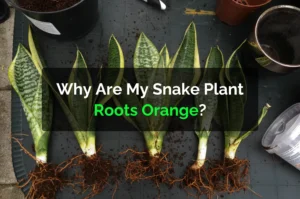Snake plants, also called Mother-in-law’s tongue or Sansevieria, are common houseplants known for their sharp, upright leaves and ability to live in low light with little care. But many people wonder: Are snake plants harmful to humans?
In this article, we’ll explain the answer in plain and easy language. We’ll cover if snake plants are poisonous, how they affect people, and how you can stay safe.
What Is a Snake Plant?
A snake plant is a tropical plant that grows upright with long, strong leaves. These leaves are often green with light green or yellow borders. Snake plants come from West Africa and are very tough, which is why people love keeping them indoors.
They don’t need much sunlight or water, and they help clean indoor air, making them a great choice for homes and offices.
Are Snake Plants Toxic to Humans?
Yes, snake plants are mildly toxic to humans if eaten. The plant contains a substance called saponin, which acts as a defense to protect the plant from insects and animals. If a person chews or swallows any part of the plant, it can cause some mild health problems.
Luckily, snake plant poisoning in humans is usually not serious. The symptoms are often mild and go away on their own, but it’s still important to know what can happen.
Symptoms of Eating a Snake Plant
If someone swallows part of a snake plant, they might experience:
- Stomach pain or cramps
- Nausea and vomiting
- Diarrhea
- Swelling in the mouth or throat
- A burning feeling in the mouth or lips
These symptoms are the body’s way of reacting to the toxic chemical. If only a small amount is eaten, the effects are usually not severe. But if a child eats a large part or symptoms don’t go away, it’s best to contact a doctor.
Is It Safe to Touch a Snake Plant?
Yes, touching a snake plant is completely safe. The leaves won’t hurt your skin, and you can water, clean, or move the plant without any problem. The plant only becomes a risk when it’s chewed or swallowed.
So, regular care like wiping leaves or trimming them is not dangerous.
Who Should Be More Careful?
While snake plants are safe for most people, a few groups need to be extra cautious:
- Small children – They might try to bite the leaves out of curiosity.
- Seniors with memory problems – Could accidentally eat plant parts.
- People with allergies – Might react more strongly to the plant.
- Pet owners – Dogs and cats may chew the leaves, and the plant is toxic to them too.
What to Do If Someone Eats It
If you think someone has eaten part of a snake plant, here are the steps to take:
- Stay calm – Snake plants are not deadly.
- Rinse the mouth – Use clean water to wash out any plant bits.
- Give water or milk – It can help ease the irritation.
- Don’t force vomiting – Let the body respond naturally.
- Watch for signs – Look out for stomach upset or swelling.
- Call a doctor or poison center – Just to be safe, especially with kids.
How to Keep Everyone Safe
You don’t need to stop growing snake plants in your home. Just take a few easy steps to keep children and pets safe:
- Keep the plant on high shelves or hang it up.
- Teach children not to eat or chew on any plant.
- Label toxic plants, so everyone knows which ones to avoid.
- Use plant stands that are out of reach.
With these simple steps, your snake plant can be a safe and beautiful part of your home.
Should You Still Grow a Snake Plant?
Yes! Snake plants have many benefits:
- They improve indoor air quality.
- They are very easy to care for.
- They look great and add style to any room.
- They can live in many types of indoor spaces.
Even though they are mildly toxic, snake plants are not dangerous if handled wisely. As long as you keep them out of reach of young children or curious pets, you can enjoy all their beauty and benefits without worry.
Conclusion
To sum it up, snake plants are mildly poisonous to humans if eaten, but they are not dangerous to touch. The plant contains a toxin that can cause upset stomach or mouth irritation, but serious health problems are rare.
With a few precautions, snake plants are a safe and lovely addition to your home. Enjoy their clean look, easy care, and air-purifying qualities — just make sure no one takes a bite!







1 thought on “Are Snake Plants Poisonous to Humans?”
As a Newbie, I am constantly exploring online for articles that can aid me. Thank you